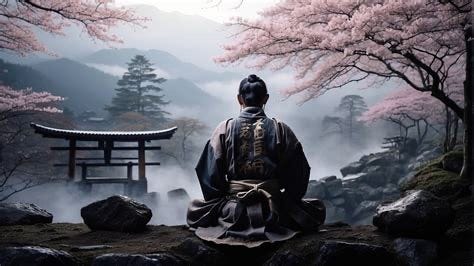Mujikaku 無自覚
The Quiet Battle: Banality, Speech, and the Warrior’s Vigil
In the philosophy of the warrior, mastery of the self is not won in a single bold stroke. It is not an act of will performed once, in a moment of triumph, but the result of a long, steady refinement of awareness—an unrelenting attentiveness to one’s patterns, impulses, and subtle habits. One of the greatest threats to this path is not some dramatic external temptation, but the slow corrosion that comes from the ordinary: words spoken in frustration, thoughts left unchecked, clicks made in idle curiosity. This is the banality of moral erosion.
Hannah Arendt, in her famous analysis of Adolf Eichmann, introduced the world to a chilling idea: the banality of evil. Eichmann was not a raving ideologue or a sadist. He was disturbingly ordinary—a functionary who had stopped thinking, stopped reflecting, and simply “followed orders.” The evil he enabled arose not from demonic passion, but from passivity. From a lack of moral attention. From a failure to stay awake.
The warrior must take this as a personal warning.
We may believe our small actions—especially in private—carry little weight. We vent. We gossip. We allow ourselves to become sharp in tone or lazy in thought. We follow clickbait headlines into stories of disgrace or scandal. We think, “It’s just a scroll,” or “I’m just curious.” But these tiny permissions accumulate. Each moment of unconscious speech or consumption weakens the subtle muscles of discernment. Each small indulgence gives momentum to the self we are not trying to become.
This is the erosion of integrity.
It happens slowly, quietly—beneath the radar of conscience. A bitter joke here. A headline about someone’s downfall there. A video dissecting a stranger’s humiliation. These are not grand acts of evil. But they shape the terrain of our hearts.
There is a particular danger in stories of collapse and shame—especially when they’re offered as entertainment. We click, perhaps, because we want to reassure ourselves that we are “better” than the person falling. Or because judgment feels like power. But the warrior does not build strength by comparing downward. The warrior builds strength by turning inward.
To feed on the failure of others is to drink salt water—it stirs the illusion of satisfaction, while subtly making us more parched for meaning.
This is not merely a lapse in ethics. It is a break in kenshō—the ability to see clearly into one’s own nature. These moments of mindless speech and consumption are forms of mujikaku—a loss of self-awareness. They create kokoro no suki—gaps in the heart where unexamined emotions slip through. Over time, they lead to jikai—a kind of inner collapse: not dramatic, but steady. Not visible, but real.
The warrior’s task, then, is not only to sharpen the sword or condition the body. It is to guard the attention. Because what we attend to, we become.
To this end, ask yourself:
• When I speak, do I bring clarity or confusion?
• When I read or watch, does it strengthen my compassion or my judgment?
• What in me is drawn to negativity—and what would happen if I faced it directly?
In the end, the most dangerous enemy is not the one outside the gate. It is the banality of thoughtless speech, unexamined habits, and unconscious consumption. These are the quiet forces that dull the edge of perception and rot the root of character.
The warrior must live as if every act matters, even when no one is watching. Because, in the end, it does.


